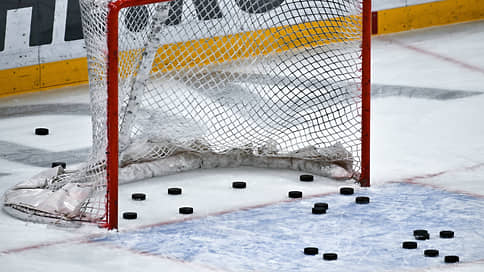The Continental Hockey League crossed conferences – Kommersant
[ad_1]

The Kontinental Hockey League (KHL), having changed the format of the cup stage from next season, got rid of one of its constants. The usual scheme with clashes in each round, except for the final, of clubs from the same KHL conference was corrected by introducing the so-called cross play-off starting from the second round. This innovation will provide a fairly high probability that the two main giants of domestic hockey – CSKA and SKA, which have constantly met in the semifinals in recent years, will finally compete with each other for the Gagarin Cup.
Continental Hockey League published the results meeting of the leaders of its clubs, which is held at the end of the season. Most notable among them was the approved structure for the next championship.
The KHL regular championship starts on September 1 with the match for the Opening Cup between CSKA and Ak Bars: these two teams played in the Gagarin Cup final in April, and the army team prevailed in it in seven meetings. Each club within its framework, as in the past season, will play 68 games. The regular season will end on February 26, and the only pause in its calendar is scheduled for December – for the Week of Hockey Stars and National Team Performances.
The change applies only to the play-off format, which will last from February 29 to the end of April. But it is extremely noticeable.
Until now, the KHL play-off scheme has copied that of the North American NHL. It has four rounds. In the first three, clubs representing the same conference, Western or Eastern, oppose each other. And only in the final, West and East collide with each other.
The new regulations left the starting round scheme, that is, the 1/8 finals, the same. In it, the best club in the regular season in the conference will play with the eighth, the second – with the seventh, the third – with the sixth, and the fourth – with the fifth. But from the second round, as it is said on the official website of the KHL, “teams will be divided into two groups.” However, we are not talking about the group stage that suddenly appeared in the middle of the cup stage, but about the so-called cross play-off, which cancels the competition for the right to play in the final exclusively within the conference. The term “group” is used for ease of understanding the principle of formation of the tournament grid. In the spring of 2024, in the first group, the best of the remaining teams from the West after the 1/8 finals will play a series with the fourth team from the East. The other pair will be the second seeded surviving team in the East and the third team in the West. At the semi-final stage, the winners of these pairs will play each other, revealing the finalist.
In the second group, the first seeded team in the East will play against the fourth team in the West, and the second team in the West will play against the third team in the East. The winners of these pairs will also play each other in the semi-finals.
This innovation must have at least one curious consequence.
The fact is that the “standard” play-off scheme, as it happened, has created something like a constant in domestic hockey. By the middle of the last decade, CSKA and SKA have become unparalleled in terms of stability and power of the giants of the KHL. Both play in the Western Conference, usually occupying the top two lines in its standings in the regular season without any problems, and then get to the semi-finals, passing weaker opponents. In fact, the semi-final series of the Moscow and St. Petersburg clubs is almost an unshakable tradition of the KHL. Over the past nine seasons, the playoffs have managed without it only twice: when in 2017 CSKA unexpectedly cut off in the quarterfinals at Lokomotiv Yaroslavl and when the end of the season was canceled in 2020 due to the coronavirus pandemic. At the same time, the opposition, which claims to be the most rated in Russian hockey, was slightly losing weight due to the fact that the Gagarin Cup was not at stake in it. The adjustments approved by the KHL provide a high probability of a meeting between CSKA and SKA already in the final.
[ad_2]
Source link









